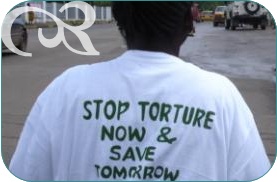Cordelia Foundation for the Rehabilitation of Torture Victims was established in 1996, with the aim of assisting torture survivor and severely traumatized asylum seekers, refugees and their family members arriving in Hungary through psychiatric, psychotherapeutic, psychological treatment and psycho-social counselling.
The initiator of the Foundation’s activity is Dr Lilla Hárdi, psychiatrist, psychotherapist, also serving as medical director and professional coordinator in charge of the organisation.
Cordelia is an accredited member of the Copenhagen-based network, the IRCT (International Rehabilitation and Research Council for Torture Victims). The Foundation received the public benefit status in 1998. At present, Cordelia is the only civil organisation in Hungary dealing with the treatment of the psycho-social and somatic problems of this unique target group through a set of complex services. We are engaged in activities of public benefit, amounting to those of primary care, yet to be tackled at state level. Our activities are financed by grants and funds, with our main donors being the EU and the UN’s OHCHR (Office of the United Nations High Commissioner for Human Rights).
Our professional team, consisting of therapists (psychiatrists, psychologists, non-verbal therapists) with multicultural experiences and training, generally treats clients at our counselling offices in Budapest and also frequently visits reception centres accommodating newly recognised beneficiaries of international protection as well as asylum seeker and refugee minors. Their work is assisted by social assistants and trained interpreters. Using our internationally acknowledged methods, we treat 400-500 clients annually in general. We regularly provide trainings and supervision for professionals working with refugees.
The UNHCR rewarded our work with the “Asylum prize” in 2004. In 2008, the committee of the Viennese ‘SozialMarie, prize for social innovation’ chose the Foundation as one of the awarded organisations. In 2009, the National Immigration and Asylum Office acknowledged the services of the Foundation in the field of mental health treatment of refugees with a certificate.
Cordelia is a Member of IRCT
The Network of IRCT (International Rehabilitation Council for Torture Victims)
As of now, more than 140 rehabilitation centres and programmes are part of the network of IRCT in the world, constituting an international movement for the victims of and against torture. These rehabilitation centres and programmes operate at a local or national level, focusing on different target groups and utilising a number of special methods, aiming to lessen the impact of torture of clients and their families.
For certain organisations, the main activity is the rehabilitation of victims, while for others, this is part of a wider scope of activities – such as a basic health care programme or human rights initiative. Prevention of torture is an integral element of the activity of many organisations, as well. These various organisations are connected through the common effort of relieving the physical and a psychological suffering of victims and – as much as possible – providing the chance of living a full life again.
Multi-disciplinary Support
Rehabilitation centres usually provide multi-disciplinary care and counselling that includes medical care, psycho-social support, legal services and financial help. In cases of treating refugee clients, the scope of services can extend to offering language learning opportunities and assistance in finding employment and housing. Also, the physical and mental aftermath of torture pose considerable difficulties to the family of the affected as well. Therefore, besides the victims themselves, members of the family – primarily the spouse and children – are taken care of via treatment and counselling, too. Torture can affect more generations, since children are especially sensitive to the consequences – as a result, they often experience feelings of remorse and personal responsibility for what has happened.
Long-term Objectives
The effect of rehabilitation centres exerted on society is often manifested indirectly, at more levels. Torture as well as the rehabilitation of victims are acts of politics. Such centres, thus, are of pivotal importance as regards democracy, peaceful co-existence and human rights. The tools implemented to achieve this end are various: organising campaigns, preparing documentation and medico-legal reports, as well as via media appearances and providing trainings.
During and following wars and other armed conflicts, self-supporting networks and structures of society frequently disappear. As a result, rehabilitation programmes developed for victims have to be integrated into more general, community-oriented initiatives. Psycho-social support given to victims of torture and inhuman treatment can facilitate the rebuilding of shattered societies.
Source: IRCT
Cordelia Foundation receives funding from international sources as well.

Founder
- Péter Kántor
Board
- Lilla Hárdi – Head
- József Holczer – Member
- Renáta Anna Jaksa – Member
Supervisory Committee
- Attila Melegh – Head
- Ildikó Szántó – Member
- Ágnes Ambrus – Member
Documents
Our partners







